The views expressed in our content reflect individual perspectives and do not represent the authoritative views of the Baha'i Faith.
Every young person faces the challenge of finding a vision and purpose for their life, a meaningful career path that will be personally rewarding while making a contribution to society. The first Earth Day, April 22, 1970, helped launch me on my path of environmental action, although the trajectory started some years before.
As a young Baha’i, I loved nature and was drawn to science through the Baha’i principle of the harmony of science and religion. I knew that Baha’u’llah, the Prophet-Founder of the Baha’i Faith, also loved nature. As His son Abdu’l-Baha put it:
Baha’u’llah loved the beauty and verdure of the country. One day He passed the remark: ’I have not gazed on verdure for nine years. The country is the world of the soul, the city is the world of bodies.’
So, I studied biology to learn more about the wonders of nature. I decided to specialize on coral reefs, perhaps the most complex ecosystem on the planet with high levels of integration and cooperation. I wanted to understand how unity in diversity is expressed in nature. It encouraged me that the ecological principles I was studying in science were also reflected in the Baha’i teachings:
Consider for instance how one group of created things constituteth the vegetable kingdom, and another the animal kingdom. Each of these two maketh use of certain elements in the air on which its own life dependeth, while each increaseth the quantity of such elements as are essential for the life of the other. In other words, the growth and development of the vegetable world is impossible without the existence of the animal kingdom, and the maintenance of animal life is inconceivable without the co-operation of the vegetable kingdom.
Of like kind are the relationships that exist among all created things. Hence it was stated that co-operation and reciprocity are essential properties which are inherent in the unified system of the world of existence, and without which the entire creation would be reduced to nothingness.
Perhaps it was divine will that thrust me into the beginning of the environmental movement. I was finishing my doctorate in marine biology at the University of California at Santa Barbara in 1969. Oil wells were being drilled offshore in the Santa Barbara Channel. One well was not properly cased, and when it broke through into the oil reservoir, the oil came rushing out from the sea bottom and could not be stopped until another well was drilled to seal off the leak. Large volumes of oil and tar washed up onto the beaches for weeks. Since I had studied the life of the seashore, I was thrown into the initial studies of the impact of oil pollution on coastal ecosystems.
After Senator Gaylord Nelson saw the environmental damage to the California coast from the Santa Barbara oil spill, he called for the organization of the first Earth Day in 1970 to draw attention to the emerging destruction of the natural environment on which we all depend. It was organized by a group of young activists in Washington, D.C., the nation’s capital. Twenty million Americans took part in what became the beginning of the environmental movement.
RELATED: An Activist’s First Step: Stop Passively Consuming Material Goods
I was living in Washington, D.C. at the time, where I was a visiting post-doctoral research associate in the Department of Botany at the Smithsonian Institution’s National Museum of Natural History. I volunteered to be a speaker and was assigned to Walt Whitman High School in Arlington, Virginia, across the river from Washington. There was a student Earth Day assembly with a large audience, where I spoke on environmental problems such as air and water pollution and their world solutions. In particular, I described my first-hand experience with the Santa Barbara oil spill, the damage that was done and the enormous effort to clean it up. We had little experience of such things at the time.
This was the beginning of my own 50 years of environmental action, including research on long-term changes on coral reef ecosystems in the Caribbean and Pacific Islands, representing the Baha’i International Community at the United Nations Conference on the Human Environment in Stockholm, Sweden, in 1972, spending a decade as regional ecological adviser to all the Pacific Island governments, and then a long career in the U.N. Environment Programme.
RELATED: 4 Benefits of Going Vegan for the World—and You
For 50 years, the message from Earth Day has been so close to the Baha’i teachings. We have been arrogant in our exploitation of nature for financial gain, raping and despoiling our planet. Yet Baha’u’llah taught us more than a century ago to approach the natural world and its resources with humility and respect. He wrote:
Every man of discernment, while walking upon the earth, feeleth indeed abashed, inasmuch as he is fully aware that the thing which is the source of his prosperity, his wealth, his might, his exaltation, his advancement and power is, as ordained by God, the very earth which is trodden beneath the feet of all men. There can be no doubt that whoever is cognizant of this truth, is cleansed and sanctified from all pride, arrogance, and vainglory….
It is deeply confirming to be motivated to environmental action by the destruction of nature and the human suffering that follows, and by the heavy burden that we are leaving to future generations. Despite 50 years of efforts, we have still not turned the corner, as current climate and biodiversity catastrophes show only too well. As Baha’is, we are fortunate to have an additional motivation on a spiritual level. So many divine attributes are reflected in the natural world, it seems a sacrilege to destroy them. Abdu’l-Baha wrote:
When… thou dost contemplate the innermost essence of all things, and the individuality of each, thou wilt behold the signs of thy Lord’s mercy in every created thing, and see the spreading rays of His Names and Attributes throughout all the realm of being…. Then wilt thou observe that the universe is a scroll that discloseth His hidden secrets, which are preserved in the well-guarded Tablet.
And not an atom of all the atoms in existence, not a creature from amongst the creatures but speaketh His praise and telleth of His attributes and names, revealeth the glory of His might and guideth to His oneness and His mercy.… Look thou upon the trees, upon the blossoms and fruits, even upon the stones. Here too wilt thou behold the Sun’s rays shed upon them, clearly visible within them, and manifested by them.
Earth Day should be seen as more than just a call to arms for better environmental protection and management. Faced with existential threats from the climate catastrophe, the biodiversity crisis, and now a pandemic demonstrating the bankruptcy of outdated views of national sovereignty and protective borders, the planet itself is telling us that a fundamental transformation is necessary in our economic system, our social relationships, our treatment of nature and our very purpose as one of many species inhabiting our terrestrial home. We must come to recognize the Earth as a precious heritage, the material cradle for an ever-advancing civilization, necessary for our spiritual as well as material development.
You May Also Like
Comments




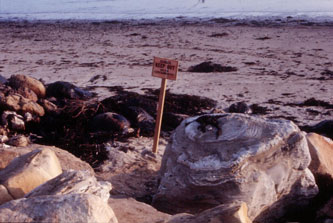
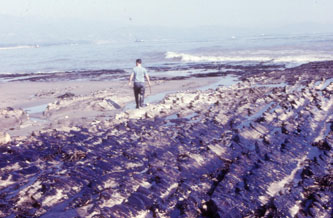
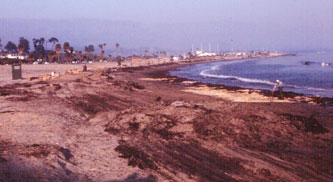
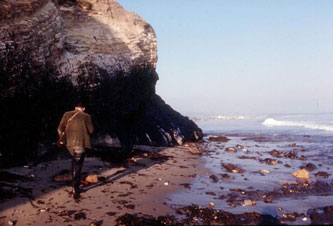



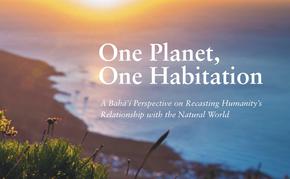









Best wishes
Margie Cushing Falanruw
Warmest regards,
Arthur